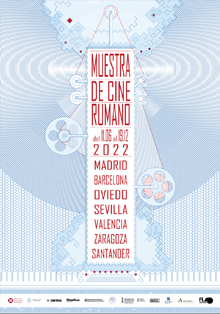Pedro González
Journalist
In this, Russian President Vladimir Putin is no different from any other leader in the world, be they absolute monarchs, despotic dictators or lifelong democrats. In the event of war, in addition to professional soldiers, forced conscription has always drawn on the most vulnerable and disadvantaged, what were always called, without euphemism, the poor. Of course, in democracies, the rich were also called upon to defend their country with arms, but they could free themselves from such a sacred duty by contributing more or less considerable sums of money to the State coffers, of which the Treasury was always short. This was the case, for example, in Spain’s wars in Africa, where the military establishment was the best springboard for rapid promotions, while the forcibly recruited troops were responsible for the bulk of the casualties. The democratic United States also fattened its recruitment for the Vietnam War with surnames as familiar to the Hispanic world as González, Martínez or Rodríguez or those with more Afro-American roots such as Brown.
Putin is doing the same in his war with Ukraine, where he has already dropped the ‘special military operation’ jibe and called it by its name. Before issuing the decree of forced mobilisation for a levy of 300,000 reservists, the Russian army’s casualty report showed a staggering difference in numbers, between the 60,000-80,000 estimated by the Ukrainians themselves, but also by British and US intelligence, and the 6,500 acknowledged by Moscow.
If we purge the larger figure of its possible propagandistic component, the reality would be around 40,000-50,000. And where are the missing from the 6,000 officially recognised? Probably abandoned or buried in graves near the battlefronts, the overwhelming majority of which are made up of poor people from Dagestan, Buratia, Krasnodar, Bashkortostan, Tuva, Yakutia, Saha or Chechnya, i.e. the regions that have provided the largest contingents of cannon fodder for an army that has had to retreat in the face of the advance of Ukrainian troops.
These same regions, the poorest in the Russian Federation, many of them subjected to the harshness of the steppe and the tundra, are now also the ones that will continue to provide the bulk of the troops for this forced levy, from which those who could afford to buy a ticket to the few places where visas are not yet required for Russian citizens – Istanbul, Yerevan and Tashkent in particular – or who were close to the borders of the European Union, at whose gates they are desperately seeking refuge, have fled in haste.
In exchange for money and freedom
Of course, those who have been able to put their feet on the ground have rejected the Kremlin’s offer of a monthly salary equivalent to 3,500 euros while serving in the war. This is a considerable sum, especially considering that the average salary in Russia is less than 450 euros, and in these regions it is barely more than 100 euros. In these, of course, the young and not so young see an opportunity to alleviate hunger and the hardships of themselves and their families.
For the prisoners in Russia’s many terrible prisons, the prize on offer is not financial, but the more valuable prize of freedom and the erasure of their criminal records, including murder, in exchange for at least six months in the tight ranks of the Kremlin. The Kremlin has reportedly delegated businessman Evgueni Progozhin to convince the convicts of the benefits of the offer. Progozhin, considered the oligarch who owns the group of mercenaries at the service of the Kremlin, does not mince his words, so he does not hide from the inmates that the intensity of the fighting they have to face, with its resulting human carnage, will probably deprive them of the promised freedom because they are most likely to die.
As media outlets such as The Guardian and The Wall Street Journal have investigated, it seems that recruits from Moscow and St Petersburg, despite the large Russian Slavic population that inhabits them, are hardly contributing to the forced levy. According to Novaya Gazeta, which accuses the Kremlin of deliberately concealing point 7 of the mobilisation decree, which refers to Putin’s power to raise the levy to the limits that his supreme will deems appropriate.
© Atalayar / All rights reserved






